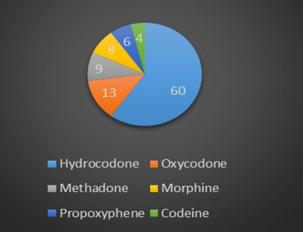Abstract
The treatment of pain is very common in dental practice. Analgesics is the safest way to relieve pain. Conventional analgesics are known as opioids and nonopioids, although the old words "narcotics" and "non-narcotics" continue to be used interchangeably. Dependence and resistance are well recognized characteristics of daily use of opioid analgesics, but this does not automatically hinder use in palliative care.The dentist should have a clear knowledge in prescribing opioid drugs to the patients. To assess dentists regarding knowledge, attitude and opinion on prescribing opioid analgesics in dental practice. A close ended questionnaire comprising of 10 questions regarding knowledge, precautionary measure, indication, guidelines in prescribing opioid analgesics in dental practice will be distributed to 100 dental practitioners. Data was tabulated and analysed by computing the percentage response for each question. Majority of the practitioners (83%) were aware and some of them (17%) were unaware regarding the usage of opioid analgesics in dental practice. Most of the respondents in this study knew the background of opioid drugs, indication, contraindication and their usage in dental practice. However, dentists should be cautious in prescribing any form of drugs to the patient.
Full text article
Authors

This work is licensed under a Creative Commons Attribution-NonCommercial-NoDerivatives 4.0 International License.

